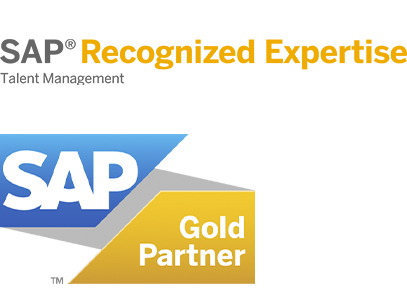
Historically, companies have relied on systems of enterprise resource planning (ERP) local to consolidate and organize the information. While these solutions have helped companies to perform better initially, there are several areas in which we fall short, especially in terms of cost, agility, and maintenance. Many of the challenges that arise with the ERP systems local are resolved with the business software in the cloud, such as ERP systems based in the cloud.
At the global level, the business leaders are moving to the cloud at an exponential rate. With more organizations that agree to the ERP in the cloud as the new standard, switch to a cloud-based solution can help your business be more agile and growth-oriented, especially in these times, in which virtual offices and remote work are becoming more common. By providing technology that is scalable, flexible and cost effective, the ERP systems in the cloud, offer several advantages over their counterparts in the site.
Advantages of cloud computing
Before exploring the ERP systems in the cloud in detail, let's take a look at the computing in the cloud itself. Cloud computing is a substantial change in how we have traditionally considered IT resources in organizations. The cloud has evolved from a technological curiosity to a critical component to update the IT environment and enable the digital transformation of small and large companies.
The platforms for computing and storage in the cloud provides many advantages over on-premises systems-traditional, including operating expenses, lower cost, and improved compatibility with the style work of digital businesses.
Some common reasons why companies are turning to the services of cloud computing are the following:
- Lower cost: cloud computing reduces the initial costs of hardware and software, as well as the costs of set up and operate data centers in the site, including servers, electricity 24 hours a day, and IT experts to manage it.
- Greater flexibility: one of the benefits of the services of cloud computing is its ability to scale in a flexible manner. In terms of cloud, this means providing the right amount of IT resources, for example, more or less processing power, storage and bandwidth, at the right time and from the geographical location appropriate.
- Improved performance: the services of cloud computing is most popular are hosted on a global network of secure data centers that are updated regularly with the latest generation of computing hardware fast and efficient. In comparison with a single corporate data center, this has several advantages, including a reduced network latency for applications and greater economies of scale. If you need more computing power for better performance, you can accomplish this easily by buying more computing power in the cloud.
- Enhanced security: many cloud providers offer a comprehensive set of policies, technologies and controls to help you improve your security posture overall, and protect their data, applications and infrastructure. This is especially beneficial for small businesses, because small businesses can't invest large amounts in the security of the data. In addition, the company may conduct its business in a secure way without hiring additional staff for the security of the data.
- Increased productivity: the storage rack and stacking (hardware configuration, implementation of software patches, and other management tasks IT time-consuming) are typical in data centers in the site.
- High reliability: cloud computing can replicate data at multiple locations on the network of the provider of the cloud, which makes data backup, disaster recovery and business continuity easier and more economic.
ERP local vs. cloud ERP
An ERP in the facility is a system of maintenance of the infrastructure ERP in the company's premises or in a data center owned by the company. Always need more computing power or bandwidth, you can buy computers plants and add them to their existing infrastructure. The advantage is that you have total control of their data and do not need to pay any third-party provider. On the other hand, users can access their ERP software over the Internet with an ERP solution in the cloud. Instead of being housed in facilities, software, and tools of ERP is delivered and managed in the cloud.
10 reasons for firms of all sizes migrate to the cloud from their facilities
Many companies, especially small and medium-sized benefit of ERP solutions in the cloud because they reduce the cost of ownership, eliminate the barriers to greater functionality, enable the agility corporate, improve data security and reduce reliance on IT. Let's take a closer look of the main advantages.
1 – Reduce your IT spending
Save money in your it infrastructure is one of the most common reasons that companies turn to the cloud. Instead of anticipating capacity requirements in advance, companies can make adjustments on the fly, get rid of obsolete assets, and adapt without effort-based resources in the cloud as a function of the specific demands.
The ERP systems based in the cloud are also implementation costs lower than the ERP systems locals because no hardware is required. This makes it a feasible alternative for small and medium sized organizations, as the majority of ERP systems based in the cloud are available by subscription and can be deployed quickly with no downtime.
2 – Boost business agility
The business flexibility is essential in the current global economy. To stay ahead of the competition and keep up with the dynamics of the industry in constant change, organizations need access to IT resources that are flexible and on-demand. And more than 99 % of what they need is available in the cloud, on demand. The hardware and the installation components no longer takes weeks or months to be delivered; instead, companies can lease capabilities directly from the cloud providers, which allows them to get to market much faster.
3 – Improve the safety
A report from Mcafee revealed that the cyber-crime and cyber security combined will cost the world economy a total of $ 1 trillion in 2020. Clearly, the higher prevalence and the impact of the attacks have highlighted the cyber security in the past few years. No company can afford to let your guard down in this regard, since the consequences can be devastating. For example, IBM set the cost of a data breach in 2021 at $ 4,24 million.
Data security is a key concern in these days, and the ERP vendors based in the cloud, such as SAP, have precautions built-in security to keep your information secure. Despite the common misperception that have an ERP in the facilities it offers more security because it is ‘internal’, to avoid the cloud services can expose your company to unnecessary security risks, as they continue to rely on internal systems obsolete or poorly managed with more vulnerabilities. that's the equivalent of the public cloud.
The ERP vendors based in the cloud can provide the security and compliance of enterprise-level, well above what a company can offer in-house. When moving to the cloud, businesses can improve your IT infrastructure and protect their programs from the efforts of piracy.
- – No more worries about the terms of the contract or the cycles of the life of the application
The efficient use of the infrastructure ERP in the facilities requires a planning and calculations in the long term. The deadlines for completion of the useful life of the solutions essential hardware and software can affect many of the decisions, and the long-term contracts and license agreements, restrictive, adding to the confusion. Currently, when new companies can become unicorns in a year, the companies simply do not want to be constrained by such concerns.
With an ERP in the cloud, organizations can pay on-the-fly by key capabilities and benefit from the updates as they become available, eliminating the need to worry about the terms of the contract or the life cycles of applications.
5 – Increase efficiency
With an ERP in the cloud, businesses no longer need to run their own data centers in the facilities. Therefore, to migrate to an ERP based in the cloud can have a significant influence in the IT department of a company. Due to the maintenance of the ERP local requires a lot of time, the internal IT staff have a limited time to develop and oversee the IT infrastructure strategic. Run an ERP from the cloud, on the other hand, generally involves less time and effort. The IT team will have fewer activities of daily maintenance to worry, because the software vendor will be taking on more technical responsibilities.
6 – take Advantage of the maintenance without complications
Companies do not have to worry about the updates or the maintenance of the ERP software because the provider hosts and maintains the infrastructure of the system. The provider also maintains the database, servers, and other infrastructure and automatically distributes new updates or patches to all clients, ensuring that the software is secure and comply with all the applicable rules and regulations. Any difficulty that arises is handled by these providers, which often provide support 24 hours a day, 7 days a week as a subscription-based service.
7 – Make use of the new technologies
Migrate to the cloud opens up a range of new opportunities to use new technologies native to the cloud. With artificial intelligence, machine learning, sophisticated analysis, and other capabilities of business intelligence already integrated into the service, the cloud ERP allows a more rapid and cost-effective to make use of these. These can help companies to create projections more accurate, discover hidden information, improve operations and create new, revolutionary services, without incurring significant costs.
8 – Deploy in less time
Deployments in the cloud tend to be faster than the counterparts in the facilities. For example, a local implementation could take up to three months, while a SaaS application of similar complexity and amplitude alone would take two weeks. This saves downtime when a transfer is complete and allows companies to respond quickly to changing market conditions or meet the demand in expansion. It also allows the company to focus on core operations and leave the concerns related to the ERP in the hands of the cloud provider, especially in the initial stages.
9 – Take a customization easier
Given that the company has to do everything internally, set up a local system to match the business purposes only it is more expensive and involves a greater commitment of time and resources. This includes gathering the right combination of functions of ERP and third-party applications, as well as perform the necessary updates and upgrades of software and hardware. All this is compounded by the fact that many companies lack the IT staff with experience in the design of solutions of business resources.
The customization of the ERP solutions in the cloud, on the other hand, is a more simple and less expensive because the customizations performed by the provider. There are No additional costs for hardware or software, and no experience is required in ERP. Therefore, companies can easily develop a solution that suits your specific needs at a low price.
10 – Enable a collaboration easier
Collaboration in the cloud is one of the main benefits of migrating to the cloud. Allows different employees collaborate simultaneously, in different geographies.
Another key benefit of the collaboration in the cloud is the control of versions. Users can work on the same document at the same time, with all changes saved and documented automatically. This reduces the need for separate copies, and leaves a trail of virtual that is easily accessible at all times.
In conclusion
All these advantages add up to the companies to create more value with less resources when migrating ERP to the cloud. However, the easiest path to the cloud is one that is tailored to the needs, goals, and the technology plan specific to your company. You choose the pace and you decide what aspects of your company must be addressed first.
For this, you must select a provider with a reputation in the contract management of infrastructure in the cloud in different industries and geographies. SAP is the provider of cloud portfolio's largest and well known in the ERP industry, with millions of cloud users and more than 100 solutions that cover all business activities.
SAP makes the data processing and the exchange of information more efficient firms. In the areas of analysis powered by AI, intelligent automation of processes and integration of data more easily, SAP ERP outperforms the competition. SAP is ideally positioned to use intelligent technologies to help you modify your mission critical operations and react quickly to change, no matter the size of your organization, with a global network of customer support that covers 34 languages, and 64 countries.
Source: SAP India News Center | Adaptation into Spanish by nBC's Services.





































































































































































































































































